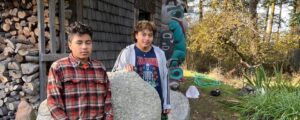
Home » Journal Articles » Thoughts & Opinions » Hooked on Basalt
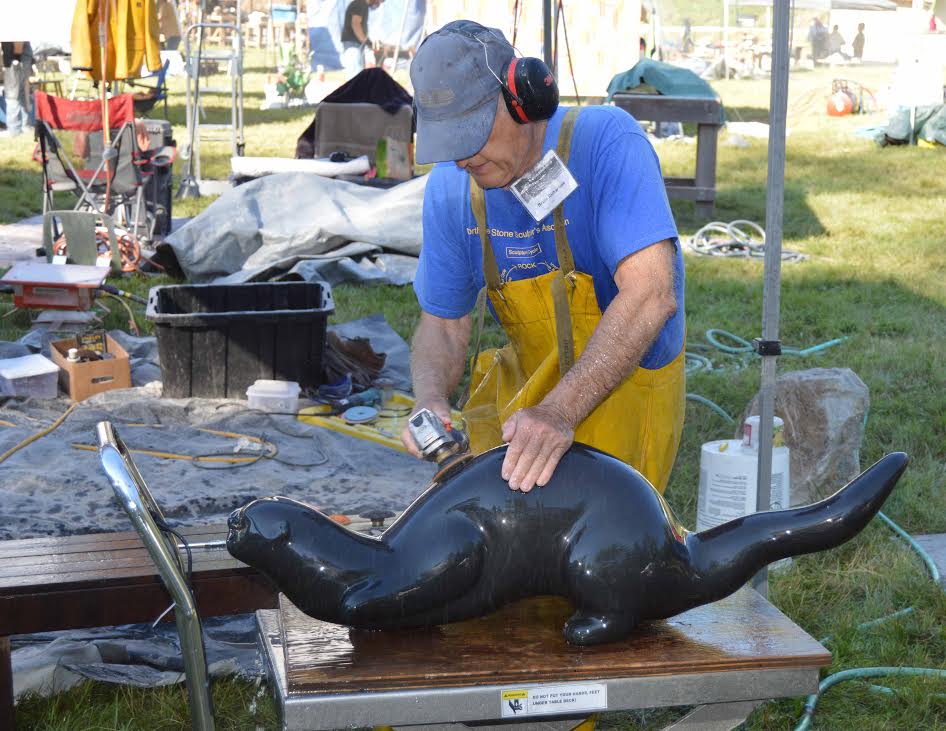
Back in the last century I started carving soapstone with my pocket knife when you could find all you wanted along the Skagit River up above the small community of Marblemount. My first big “Aha” moment came when I finished sanding and rubbed my little frog with linseed oil! Where did all those colors come from?
At Camp Brotherhood for my first time three years ago, I took the plunge and with the help of Ruth Mueseler and Tamara Buchanan, learned about working granite with diamond tools and angle grinders. Although the actual carving process took a lot longer, that same excitement was there as polishing revealed unsuspected depth and patterns in the stone. That granite whippoorwill was only 12” long, but she convinced me hard rock was music I was destined to dance to.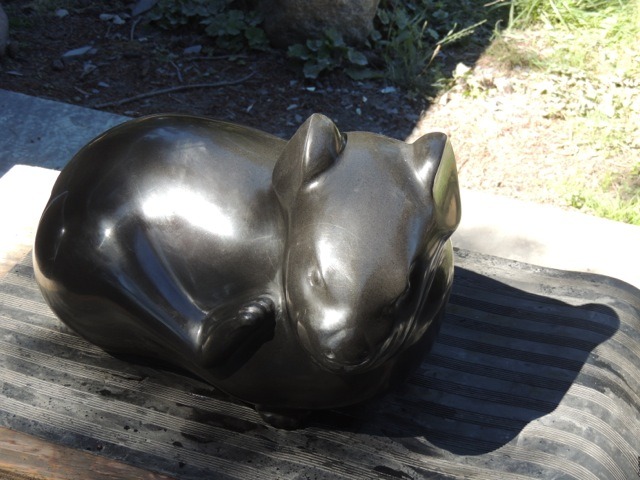
Next summer when some barely manageable-sized pieces of columnar basalt showed up at the auction, I bit. How could I resist after seeing what Tom Small and others were doing with basalt and how they transformed it into black glass. A dull six sided grey column does not exactly generate a lot of instant ideas in one’s mind from its looks. Being a realistic sculptor who likes to carve animals I tried to imagine the most flowing and plastic creatures lurking inside with bodies that could be manipulated to minimize the amount of rock to be removed. In the end my artistic muse saw a river otter, so I started to fret my way into unknown territory. After three days of chips and dust clouds a number of wandering spectators asked if I was carving a slug.
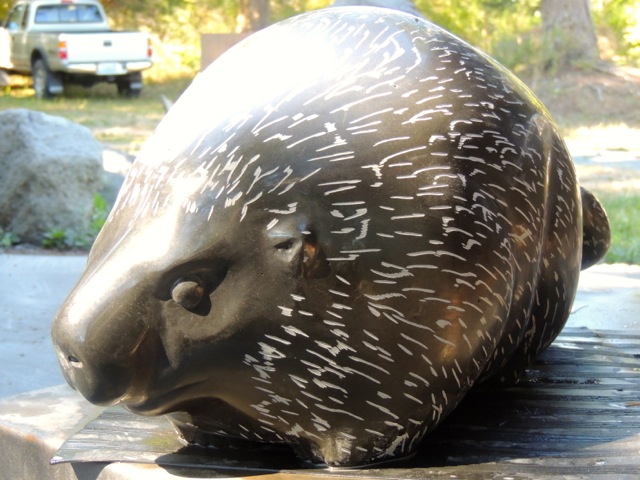 With basalt the learning curve is steep. How much detail is realistically achievable? Curves need to be polishable. Small projections aren’t a good idea. And then there was always that pushy muse in the background repeating, “Nothing ventured, nothing gained.”
With basalt the learning curve is steep. How much detail is realistically achievable? Curves need to be polishable. Small projections aren’t a good idea. And then there was always that pushy muse in the background repeating, “Nothing ventured, nothing gained.”
Camp B, year three, otter and me. After four long days in my bathing suit wet polishing I got my reward; a slippery, glistening, curvy otter, just out of the river wondering where she came from? That first assault on basalt got me hooked for life. (And should keep me fit for life ….)
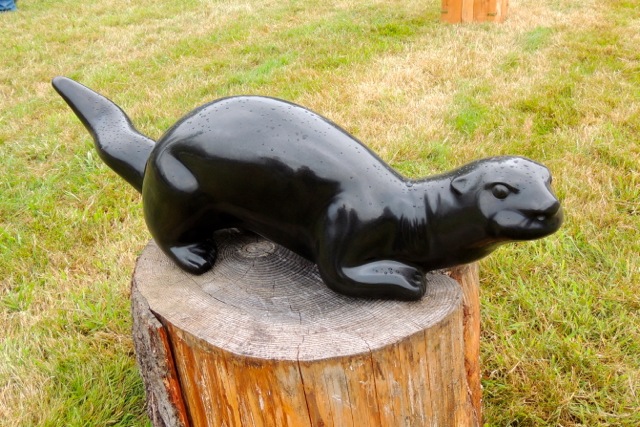 As I waited for the ferry back to Lopez Island on my way home that year, filled with wild excess energy from seven days with seventy other stoned fanatics gathered on “Planet Granite,” I noticed the black long necked cormorants drying themselves on the dock pilings. Wet, black, shiny and plastic! There had to be a way to find one in that other basalt column in the back of my truck that didn’t have a foot long neck and a narrow beak waiting to be snapped off by an unplanned encounter with a vacuum cleaner. Like otters, they are amazing contortionists and before long one showoff twisted his neck around to preen the back of his wing and I was a witness. The deal was sealed and the rest history …. and chips and dust and pools of water.
As I waited for the ferry back to Lopez Island on my way home that year, filled with wild excess energy from seven days with seventy other stoned fanatics gathered on “Planet Granite,” I noticed the black long necked cormorants drying themselves on the dock pilings. Wet, black, shiny and plastic! There had to be a way to find one in that other basalt column in the back of my truck that didn’t have a foot long neck and a narrow beak waiting to be snapped off by an unplanned encounter with a vacuum cleaner. Like otters, they are amazing contortionists and before long one showoff twisted his neck around to preen the back of his wing and I was a witness. The deal was sealed and the rest history …. and chips and dust and pools of water.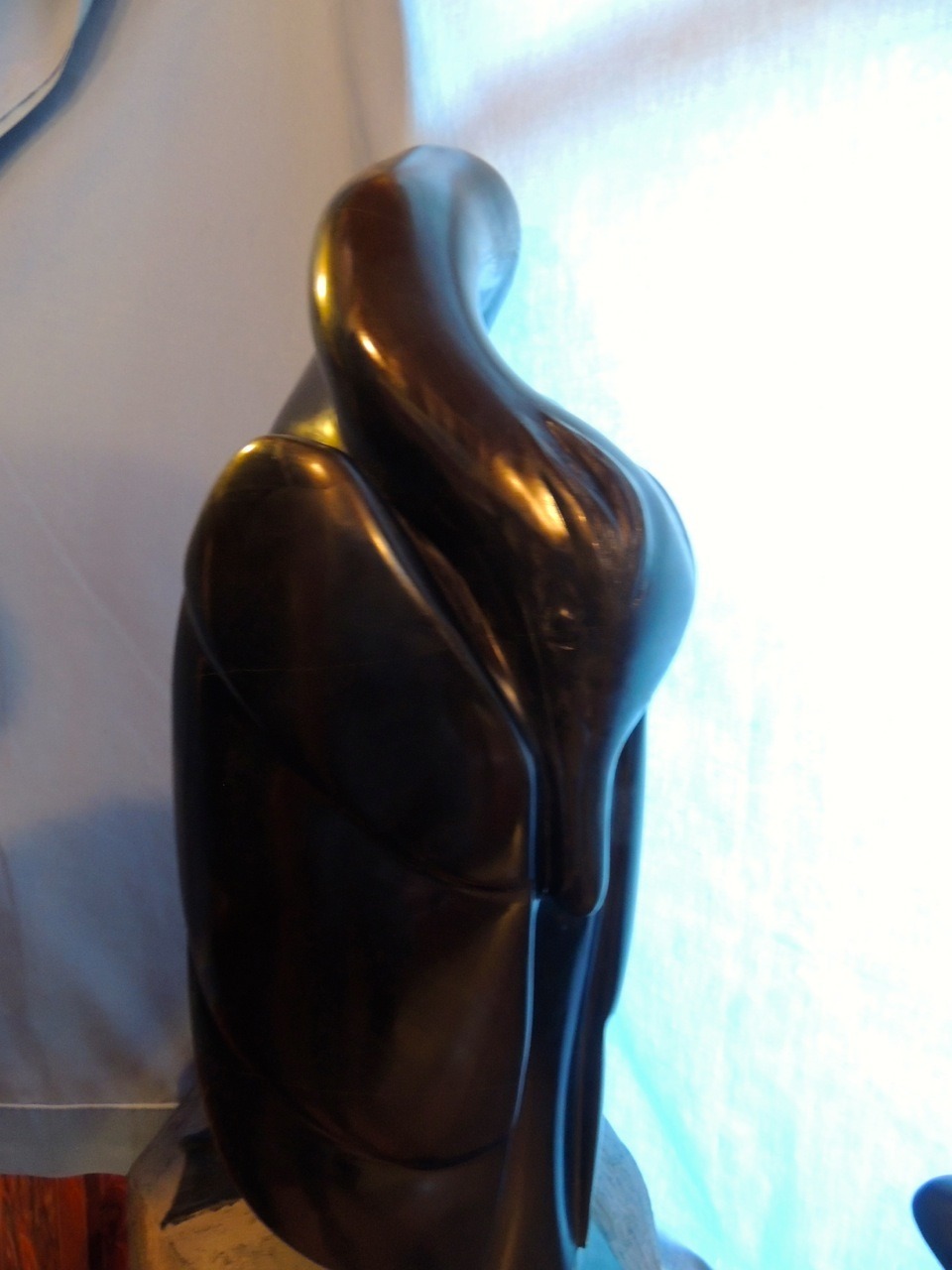
Two otters, a cormorant and a porcupine later as I pondered a scarred and broken chunk of the other “black gold,” a high mountain pika let out its characteristic warning cry. Yes, they are rabbit relatives, but with short mouse-like ears, no tail, no skinny legs, but fat bodies …. hmm. I scratched my head. She scratched hers. I gave in. She posed for her portrait and the writing was on the wall, or chips were in the scrap bucket, as the case may be.
Come to camp next summer for chapter six, “Marmot Meets Maniac,” and maybe chapter seven, “Squirreled Away for a Million Years.”

We need some kind of descriptive text here.